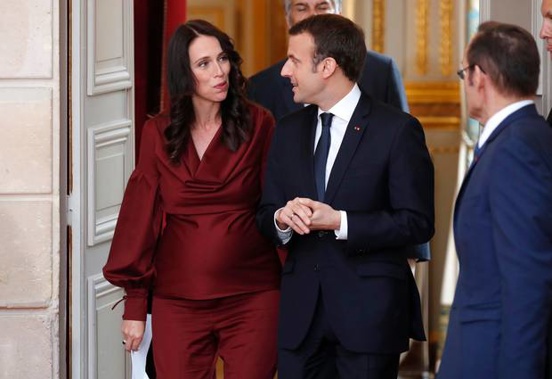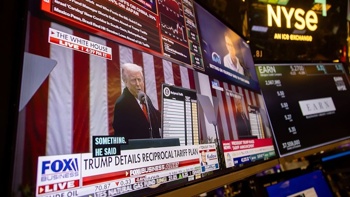
Jacinda Ardern's leaving France with a closer tie forged between her and her French counterpart.
The Prime Minister met with French President Emmanuel Macron overnight, where free trade negotiations were at the forefront of discussions.
Herald deputy political editor Claire Trevett told Kate Hawkesby the French president agreed to support the EU-New Zealand free trade negotiations to begin.
"He made a lot of what [Ardern] calls the progressive and inclusive free trade approach, and he said he agreed with that. He called it a new generation of free trade agreements."
The two young leaders appeared to get along well.
"And they seemed to get along very well. She referred to his age as similar to hers and that made the conversation flow a bit more freely. He is renowned as a bit of a charmer, and it seems he did work his magic."
After the meeting, Ardern spoke at the Paris Institute of Political Studies, the university where Macron was educated.
Ardern told the packed theatre that the world, including New Zealand had celebrated when the Paris Accord on climate change was signed in December 2015.
She said while her government was "unique" in that the one area where they all agreed was on climate change.
Ardern began by recalling being booed for mentioning global warming at an election debate in Morrinsville 10 years ago, joking that her grandmother was among those booing her.
She spoke of the effects of climate change on the Pacific Islands, saying the extreme weather events and rising sea levels put some islands at the risk of extinction.
She said New Zealand was at the forefront of women's suffrage, the welfare state, and had taken a principled stance within the UN on matters from commercial whaling to nuclear weapons.
She said she would like to think New Zealand would be a leader on climate change - but others were also needed.
"I hope each of us can look back on this period of time and say that we were on the right side of history."
Ardern also took questions from the audience, ranging from the prison population to how Maori were being included in climate change efforts and whether it was difficult to keep emissions low given the travel distances to New Zealand. She was also asked how she could go about winning other international leaders to climate change action, such as US President Donald Trump.
To that, Ardern said she preferred to focus on what was possible - and referred to New Zealand's tricky situation included transport.
"We don't have a natural inclination to use public transport partly because we didn't build it."
However, she said the biggest was agricultural emissions.
Ardern was given a glowing welcome by Sciences Po President Frederic Mion, who said she was something of a role model for the students due to her youth - and "the way you are reconciling pregnancy and the leadership of your country."
He referred to the euphoria over the Paris Agreement being tempered by international upheaval from Brexit, the election of US President Donald Trump, the terror attacks in Europe including France.
"As is sometimes, if not always, the case hope springs up again in the guise of youth," he said.
Jacinda Ardern will meet German Chancellor Angela Merkel in Berlin later tonight.
LISTEN TO CLAIRE TREVETT TALK WITH KATE HAWKESBY ABOVE
Take your Radio, Podcasts and Music with you









